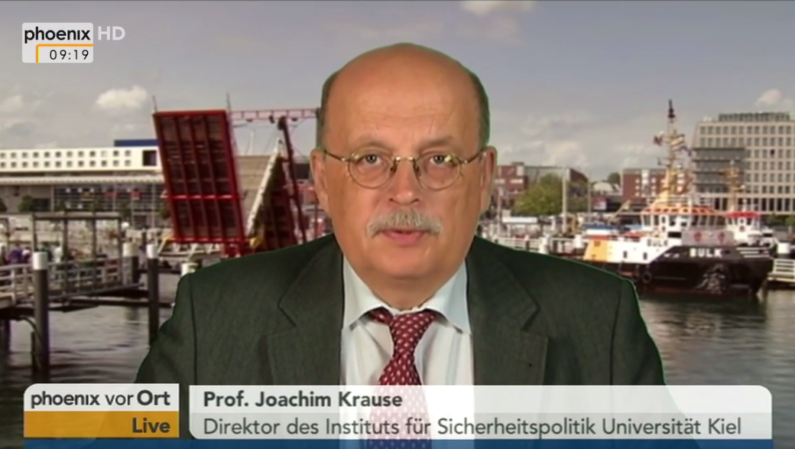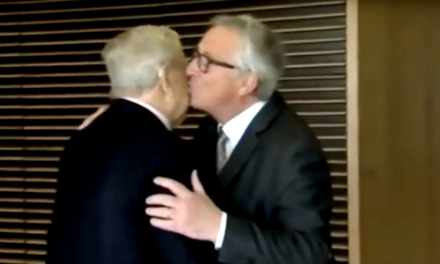Nowadays, the spirit of impatient liberalism has spread and become general in Germany. The traditional perception of the order of life is rejected, the sense of threat of smaller states is not taken seriously. The big parties, such as the CDU/CSU or the SPD, must find an answer to this.
As a German, mainly in Eastern Europe, but also in the Scandinavian world, I increasingly come across the criticism that Germans today are characterized by intolerant liberalism. As a liberal, I tried to defend this criticism for a long time, but I had to admit that many of the criticisms were well-founded. There are five areas where our European neighbors find liberal impatience on the part of the Germans unpleasant.
First of all, there is the antipathy towards the nation and state sovereignty. This position is understandable because the National Socialists and the Nazis misused the concepts of nation and patriotism. Still, Germans tend to fall from one extreme to the other. Nowadays , German politicians and representatives of the media and science warn other Europeans about how harmful nationalism is and how important it would be to deepen European integration. From a philosophical point of view, this could be true, but this theory is far removed from the realities of Europe.
The majority of European countries are made up of nations that had to dream of their own sovereignty for a long time, they are often small and their inhabitants feel safe in the bosom of the nation. They are suspicious of the pressure, especially from Germany, for even more integration.
Second: In Germany, the turning away from the traditional social structure is increasingly noticeable. The narrative that the role of the traditional family in the normal structure of society is obsolete is becoming more and more prevalent. The individual must find his life opportunities in the free shaping of his own destiny - from choosing his own gender to the goal that everyone graduates from university or that all women prevail in the world of work.
In many countries of Central, Eastern and Southern Europe, they doubt this German way of life with reason and right. Most of them have a traditional view of society and family.
Thirdly: in the eyes of those who wish to politicize in their national and international capacity, the basic requirement that places justice and equality at the center seems repugnant. This is most evident in the case of migration. In 2015, more than half of Germans thought it was correct that one million people fleeing war and economic difficulties are arriving in the country in an unorganized manner. If Austria, Hungary and Croatia had not closed their borders then, there would have been a few million more people.
It is true that they are not the majority, but there are still many people in politics and the media who demand that Germany and Europe accept people more or less without limits in the name of humanity and justice. They often justify this with the crimes of colonialism, the effects of capitalism, or with the fact that our energy consumption sends millions of refugees on their way due to climate conditions, whom we should then welcome. Especially in the smaller nations, this German idea arouses complete opposition.
Fourth: liberal intolerance is especially visible in the fact that we underestimate the sense of threat of Eastern and Northern Europeans. After the Russians annexed Crimea and parts of Ukraine, the Baltic states, Poland, Sweden and Finland have a legitimate fear of a Russian invasion. This fear is fueled by the Russians' maneuvers and troop combinations. The German response today is overwhelmingly to educate these countries that their fears stem from old, outdated thinking... Only a policy of arms control dialogue with Russia is acceptable. This view prevailing in Germany is not only considered utopian by serious experts, but it is also received with serious concern in the countries of Central, Eastern and Northern Europe.
Fifth: there is also a danger in absolutizing climate problems. It is undisputed that climate change is a threat to all of humanity and that a transformation of our economy and life, as well as large-scale technological innovation, is necessary in order to stop the greenhouse effect and reduce the consequences of climate change.
The way climate policy is pursued in Germany within the framework of liberal intolerance is hysterical, short-sighted and arrogant. It is aimed at putting all other political intentions and alternatives behind the climate policy dictated by the Greens. Impatient, autocratic liberal climate policy threatens democracy.
Germany, whose politics are defined by progressive, postmodern liberalism, is a burden for Europe.
Author: Joachim Krause is one of the leaders of the Science and Democracy Foundation in Kiel, director of the Security Policy Institute of the University of Kiel.
Source: Neue Zürcher Zeitung/ungarnreal.de
Translated by Barnabás Zólyom
(Cover image source: YouTube)













